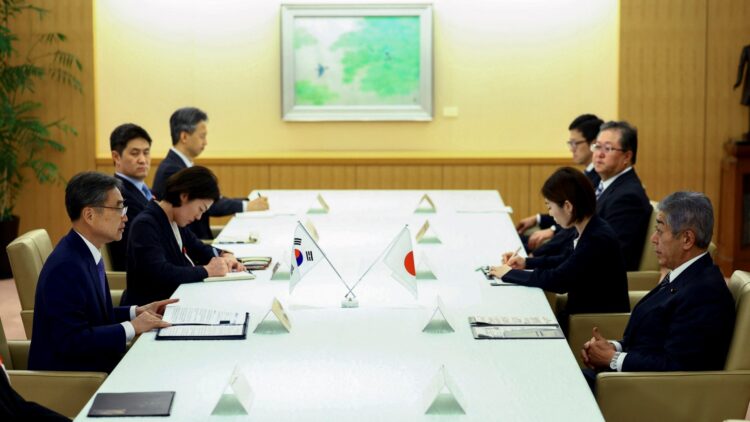With the recent appointment of Koo Yun-cheol as South Korea’s likely new finance minister, President Lee Jae Myung’s government seeks to strengthen its economic strategy in the face of trade uncertainty with the United States. Koo’s initial statements signal a focus on emergency measures to protect the local economy, while bilateral negotiations on tariffs intensify.
Economic pressures and tariff talks with the U.S.
South Korea needs to take measures to support its economy in the short term as it continues tariff talks with the U.S., its likely new finance minister Koo Yun-cheol said on Sunday after being nominated for the role by President Lee Jae Myung. Koo, a former vice finance minister, still needs to go through parliament hearings before being confirmed as finance minister. Other ministerial appointments were also announced by the president’s office on Sunday.
“We need to take pre-emptive measures and prepare for situations such as the current tariff negotiations with the United States,” Koo told a press conference. “Through this process, we plan to actively and proactively respond to the difficulties that the South Korean economy faces in the short term,” he said.
Trade envoy Yeo Han-koo returned home after holding the first high-level tariff talks with his U.S. counterparts since President Lee took office on June 4. South Korea has sought exemptions from U.S. President Donald Trump’s high tariffs on imports of automobiles and steel products, as well as a 25% “reciprocal” levy on the U.S. ally that is currently paused for negotiations.
Yeo said his trip helped build mutual trust to expedite the negotiations and make friends in Washington. Asked if the July 8 deadline for negotiations over tariffs was still valid, Yeo said every possibility was left open. “In fact, the situation in the United States is very fluid. So, for now, I can say that all possibilities are open,” he told reporters. The U.S. has demanded that South Korea improve non-tariff barriers particularly in the agricultural and digital services sectors, according to South Korean officials.
Profiles and priorities of Lee’s cabinet nominees
The ministerial choices reveal President Lee’s intention to form a technical team with in-depth knowledge of strategic sectors. Koo’s appointment reinforces the emphasis on innovation-driven growth, as he has distinguished himself by championing economic modernization based on artificial intelligence and technology. Kim Jung-kwan’s appointment as Minister of Industry seeks a transition that maintains a balance between renewable sources and the continued use of nuclear energy.
New finance minister Koo is widely known as a policy expert, having served in different positions across government and has authored books on South Korea’s innovation and growth, most recently on artificial intelligence, Lee’s chief of staff, Kang Hoon-sik, told a briefing. Among other ministerial positions, Kim Jung-kwan, president of power plant builder Doosan Enerbility and a veteran bureaucrat in economics, energy and public policy, was nominated to be industry minister. Kim fits the role to realise President Lee’s “energy mix philosophy”, Kang said, referring to the new president’s aim to balance nuclear power and renewable energy.
Strategic moves to accelerate policy implementation
President Lee’s approach to assembling his team, using the prerogative to appoint ministers even without parliamentary approval, reflects confidence and a rush to advance priority policies. The expectation is that the appointments, although still subject to public hearings, will move forward without major obstacles, which would allow the government to accelerate responses to external pressures and implement its economic program.
Parliamentary dynamics and executive Authority
The South Korean government is banking on an experienced and technically prepared ministerial team. The appointments indicate that Lee intends to align his economic and energy policies with a long-term vision, but without losing sight of immediate challenges, such as tariff negotiations with the United States.
GCN.com/Reuters


